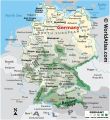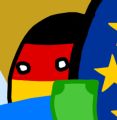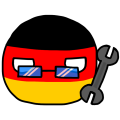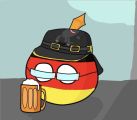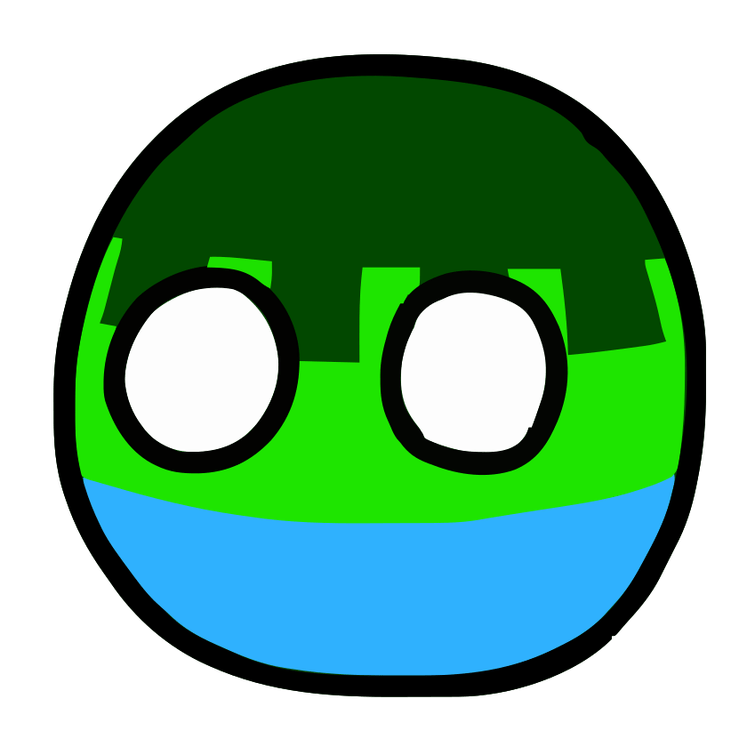Germany: Difference between revisions
No edit summary |
|||
| Line 57: | Line 57: | ||
Germany was divided during the Cold War, the west side was [[File:Democracy-icon.png]] [[Democracy|free]] and [[File:Capitalism-icon.png]] [[Capitalism|capitalist]] while the east side was [[File:Totalitarianism-icon.png]] [[Totalitarianism|totalitarian]] and [[File:Communism-icon.png]] [[Communism|communist]]. The two parts were divided by a wall known as the “Berlin Wall”. Because of the East’s brutal communist rule, people began to protest and eventually the government gave up, letting people smash and tear the wall apart. Finally, the East and the West were united in one Germany. | Germany was divided during the Cold War, the west side was [[File:Democracy-icon.png]] [[Democracy|free]] and [[File:Capitalism-icon.png]] [[Capitalism|capitalist]] while the east side was [[File:Totalitarianism-icon.png]] [[Totalitarianism|totalitarian]] and [[File:Communism-icon.png]] [[Communism|communist]]. The two parts were divided by a wall known as the “Berlin Wall”. Because of the East’s brutal communist rule, people began to protest and eventually the government gave up, letting people smash and tear the wall apart. Finally, the East and the West were united in one Germany. | ||
Following the unification in 1990, Germany faced the significant challenge of integrating the two vastly different economic and social systems of East and West. He embarked on a massive reconstruction and development program, particularly in the former [[File:East Germany-icon.png]] [[East Germany]], to address economic disparities and modernize infrastructure. Over the years, Germany emerged as a leading economic powerhouse in Europe, driven by his robust industrial base, technological innovation, and a commitment to the [[File:EU-icon.png]] [[European Union]]. Germany also played a crucial role in European politics, advocating for unity and stability within the [[File:EU-icon.png]] [[European Union|EU]]. Socially, Germany dealt with issues such as immigration, demographic changes, and the rise of [[File:Rpop-icon.png]] [[Right-Wing Populism]] due to woke mishandlings, but he remained committed to [[File:Dem-icon.png]] [[Democracy|democratic]] values and human rights. | Following the unification in 1990, Germany faced the significant challenge of integrating the two vastly different economic and social systems of East and West. He embarked on a massive reconstruction and development program, particularly in the former [[File:East Germany-icon.png]] [[East Germany]], to address economic disparities and modernize infrastructure. Germany invested over two trillion marks in the rehabilitation of the former [[File:East Germany-icon.png]] [[East Germany]], helping it to transition to a market economy and cleaning up the environmental degradation. By 2011 the results were mixed, with slow economic development in the East, in sharp contrast to the rapid economic growth in both west and southern Germany. | ||
Over the years, Germany emerged as a leading economic powerhouse in Europe, driven by his robust industrial base, technological innovation, and a commitment to the [[File:EU-icon.png]] [[European Union]]. Germany also played a crucial role in European politics, advocating for unity and stability within the [[File:EU-icon.png]] [[European Union|EU]]. Socially, Germany dealt with issues such as immigration, demographic changes, and the rise of [[File:Rpop-icon.png]] [[Right-Wing Populism]] due to woke mishandlings, but he remained committed to [[File:Dem-icon.png]] [[Democracy|democratic]] values and human rights. | |||
Germany also sent a peacekeeping force to secure stability in the Balkans and sent [[File:GermanArmy-icon.png]] [[German Army|German troops]] to [[File:IRAfghan-icon.png]] [[Islamic Republic of Afghanistan|Afghanistan]] as part of a [[File:NATO-icon.png]] [[North Atlantic Treaty Organization|NATO]] effort to provide security in that country after the ousting of the [[File:AfghanTaliban-icon.png]] [[Taliban]]. While apologizing for WWII, Germany built a stable economy and a stable relation with most of Europe. He now is the most popular figure in Europe. He also became powerful, but he only uses his power for good. | Germany also sent a peacekeeping force to secure stability in the Balkans and sent [[File:GermanArmy-icon.png]] [[German Army|German troops]] to [[File:IRAfghan-icon.png]] [[Islamic Republic of Afghanistan|Afghanistan]] as part of a [[File:NATO-icon.png]] [[North Atlantic Treaty Organization|NATO]] effort to provide security in that country after the ousting of the [[File:AfghanTaliban-icon.png]] [[Taliban]]. While apologizing for WWII, Germany built a stable economy and a stable relation with most of Europe. He now is the most popular figure in Europe. He also became powerful, but he only uses his power for good. | ||
Revision as of 00:47, 18 August 2024
“
Your mouth is filled with måny objeks of krunching and destruncktion
— ![]() Random German guy
Random German guy
Germany has a lot of 🦠 germs is a ![]() Turk
Turk![]() “Germoney”. He is also a founding figure of the
“Germoney”. He is also a founding figure of the ![]() European Union, giving monies and trying to keep everyone together. All this work usually makes him stressful, so he drinks a lot of beer. 🍺
European Union, giving monies and trying to keep everyone together. All this work usually makes him stressful, so he drinks a lot of beer. 🍺
Geschichte (History)
Germany was divided during the Cold War, the west side was ![]() free and
free and ![]() capitalist while the east side was
capitalist while the east side was ![]() totalitarian and
totalitarian and ![]() communist. The two parts were divided by a wall known as the “Berlin Wall”. Because of the East’s brutal communist rule, people began to protest and eventually the government gave up, letting people smash and tear the wall apart. Finally, the East and the West were united in one Germany.
communist. The two parts were divided by a wall known as the “Berlin Wall”. Because of the East’s brutal communist rule, people began to protest and eventually the government gave up, letting people smash and tear the wall apart. Finally, the East and the West were united in one Germany.
Following the unification in 1990, Germany faced the significant challenge of integrating the two vastly different economic and social systems of East and West. He embarked on a massive reconstruction and development program, particularly in the former ![]() East Germany, to address economic disparities and modernize infrastructure. Germany invested over two trillion marks in the rehabilitation of the former
East Germany, to address economic disparities and modernize infrastructure. Germany invested over two trillion marks in the rehabilitation of the former ![]() East Germany, helping it to transition to a market economy and cleaning up the environmental degradation. By 2011 the results were mixed, with slow economic development in the East, in sharp contrast to the rapid economic growth in both west and southern Germany.
East Germany, helping it to transition to a market economy and cleaning up the environmental degradation. By 2011 the results were mixed, with slow economic development in the East, in sharp contrast to the rapid economic growth in both west and southern Germany.
Over the years, Germany emerged as a leading economic powerhouse in Europe, driven by his robust industrial base, technological innovation, and a commitment to the ![]() European Union. Germany also played a crucial role in European politics, advocating for unity and stability within the
European Union. Germany also played a crucial role in European politics, advocating for unity and stability within the ![]() EU. Socially, Germany dealt with issues such as immigration, demographic changes, and the rise of
EU. Socially, Germany dealt with issues such as immigration, demographic changes, and the rise of ![]() Right-Wing Populism due to woke mishandlings, but he remained committed to
Right-Wing Populism due to woke mishandlings, but he remained committed to ![]() democratic values and human rights.
democratic values and human rights.
Germany also sent a peacekeeping force to secure stability in the Balkans and sent ![]() German troops to
German troops to ![]() Afghanistan as part of a
Afghanistan as part of a ![]() NATO effort to provide security in that country after the ousting of the
NATO effort to provide security in that country after the ousting of the ![]() Taliban. While apologizing for WWII, Germany built a stable economy and a stable relation with most of Europe. He now is the most popular figure in Europe. He also became powerful, but he only uses his power for good.
Taliban. While apologizing for WWII, Germany built a stable economy and a stable relation with most of Europe. He now is the most popular figure in Europe. He also became powerful, but he only uses his power for good.
Germany has opened up his borders to migrants, but is facing consequences. Migrants are now causing havoc in the country. He is also experiencing lots of flooding. 🌊
Etymologie (Etymology)
The ![]() English word Germany derives from the
English word Germany derives from the ![]() Latin word "Germania", which came into use after
Latin word "Germania", which came into use after ![]() Julius Caesar adopted it for the peoples east of the
Julius Caesar adopted it for the peoples east of the ![]() Rhine.
Rhine.
ẞeziehungen (Relations)
Freunde/Freundinnen (Friends)
 Frankreich -
Frankreich - MEIN WORST ENEMY!!Mein Spouse, we gave birth to EU. I love du.
EU. I love du. (Doing a very gross kiss). Österreich - Little sißling. Mein ßester Freund (also the guy who got me into ßoth World Wars). Alpine version of me.
Österreich - Little sißling. Mein ßester Freund (also the guy who got me into ßoth World Wars). Alpine version of me. Europäische Union - Mein Proud child. Inherited
Europäische Union - Mein Proud child. Inherited  France's ßeautiful sophisticated culture,
France's ßeautiful sophisticated culture,  Belgium's
Belgium's  capital and mein Efficient Super Science, the ßest of three worlds possessing all of our genius. Also wants
capital and mein Efficient Super Science, the ßest of three worlds possessing all of our genius. Also wants  Ukraine as its birthday present. I am still teaching them mein superior military tactics- so far they have scored a 100% grade on most
Ukraine as its birthday present. I am still teaching them mein superior military tactics- so far they have scored a 100% grade on most  Russian Invasion training scenarios. Ich ßin proud - are strönk.
Russian Invasion training scenarios. Ich ßin proud - are strönk. But yuo banned mich freund's palm oil for no reason.
freund's palm oil for no reason. Israel - PLEASE FORGIVE ME IEIM SO SORRY!!!
Israel - PLEASE FORGIVE ME IEIM SO SORRY!!!
Neutral
 Griech - You need to pay debt
Griech - You need to pay debt
Feinde (Enemies)
 Russland - NEIN NEIN NEIN! STOP INAVDING
Russland - NEIN NEIN NEIN! STOP INAVDING  Ukraine IMMEDIETLY!
Ukraine IMMEDIETLY! Nordkorea - Stop the nuclear threats! Or face destruktion!
Nordkorea - Stop the nuclear threats! Or face destruktion! Nazi Deutschland - MEIN WORST FATHER EVER!!!
Nazi Deutschland - MEIN WORST FATHER EVER!!! Brazil - HAHAHAHA, I BEATED YOU IN FOOTBALL GAME, CRY ABOUT IT!!!
Brazil - HAHAHAHA, I BEATED YOU IN FOOTBALL GAME, CRY ABOUT IT!!! this is the one war crime that I’m not sorry about
Wissenswertes (Trivia)
- There are more than 20,000 castles in Germany. 🏰
 German is the third most widely taught language in the world.
German is the third most widely taught language in the world.- Germany has been called the “Land of Poets and Thinkers.”
Wie Man Zeichnet (How to draw)
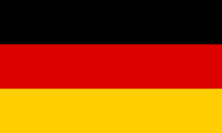
- Draw a ball.
- Fill the ball with three horizontal stripes of color top-to-bottom in the following order: black, red, yellow.
- Add the eyes and you are done!
- Add a bottle of beer and/or glasses (optional)
- Add a working tool (optional)
| Color Name | HEX | |
|---|---|---|
| Black | #000000 | |
| Red | #FF0000 | |
| Yellow | #FFCC00 | |
Informationsgalerie (Informational Gallery)
-
Map of Germany
Galerie (Gallery)
-
gernamy
-
Wörk
-
amogus no visor real!!!!!
| States | |
|---|---|
| Cities | |
| Historical Entities | |
| German Ideologies | |
| Political Parties | |
| Military | |
| Languages | |
or else… | |
